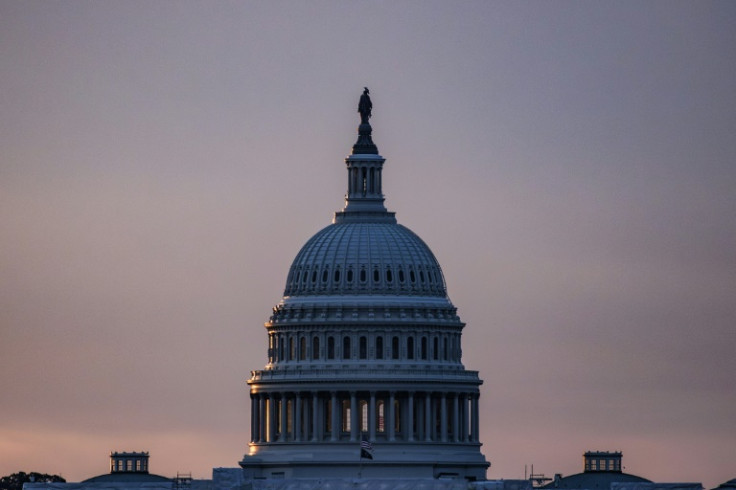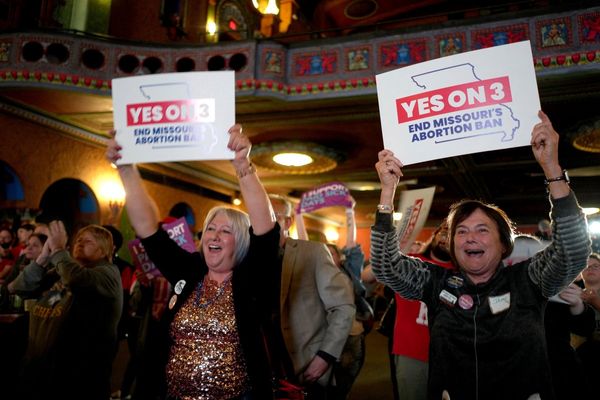
In a vote that underscored deep divisions on Capitol Hill, Senate Republicans pushed through a sweeping $3.3 trillion fiscal package early Tuesday, narrowly passing the legislation that has become a centerpiece of Donald Trump's revived economic agenda.
Vice President J.D. Vance cast the tie-breaking vote in a 50-50 split just before dawn, ending hours of high-stakes debate over a bill Republicans have branded the American Prosperity, Security, and Taxpayer Relief Act—but which Trump has repeatedly promoted as the "Big Beautiful Bill."
The legislation now heads to the House, where GOP leaders are aiming for final passage ahead of the July 4 recess.
Inside the Bill: Tax Relief, Program Cuts, and Border Security
At the heart of the measure are permanent extensions to the 2017 tax cuts, a lower corporate tax rate of 17%, and fresh incentives for companies investing in U.S.-based manufacturing, artificial intelligence and advanced technology infrastructure.
To help offset the price tag, the bill slashes federal outlays on health care and social programs, including Medicaid, food assistance and student loan subsidies. Work requirements for recipients of federal aid would also expand under the plan.
Other major components include:
- $80 billion in new border security funding, earmarked for construction, surveillance, and expanded immigration enforcement.
- A rollback of climate-related tax credits, including incentives for electric vehicles and clean energy projects.
- A freeze on new federal hires and cuts to agency discretionary budgets.
Reactions: Applause, Warnings and Dissent
Republicans hailed the bill as a "return to common-sense economics," arguing it would reinvigorate U.S. industry and rein in bloated federal programs. Senate Minority Leader Mitch McConnell called the legislation "a long-overdue course correction for a government that spends too much and delivers too little."
But Democrats and advocacy groups condemned the package, describing it as a handout to corporations at the expense of vulnerable families. Senate Majority Leader Chuck Schumer said the cuts would "gut the middle class in exchange for boardroom bonuses."
Even within GOP ranks, dissent emerged. Sen. Susan Collins (R-Maine) opposed the bill over cuts to health programs in rural states, while Sen. Rand Paul (R-Ky.) raised alarms about long-term deficit growth.
Markets Cautious, Fed Eyes Inflation Risks
Investor sentiment was mixed Tuesday morning, as markets weighed the prospect of aggressive tax cuts against the risk of renewed inflation. The U.S. dollar slid to a multi-year low, while Treasury yields rose slightly in early trading.
Federal Reserve Chair Jerome Powell issued a brief statement warning that "unbalanced fiscal momentum" could complicate the central bank's ability to ease interest rates later this year.
On Wall Street, clean energy firms slipped on fears of subsidy losses, while cloud and AI-related stocks saw gains in anticipation of corporate tax relief and tech-focused incentives.
Experts Divided on Economic Impact
Economists remain split on the bill's long-term implications.
"This is not just a tax cut—it's a reordering of federal priorities," said Angela Tse, a policy analyst at the Brookings Institution. "While it may boost near-term corporate activity, the social cost could be substantial."
Others argue the bill could deliver real gains for U.S. competitiveness, especially in the face of global economic shifts.
"If implemented effectively, it could position the U.S. as a dominant force in the next wave of innovation," said Mark Leighton, a senior economist at Deloitte.
However, early scoring from the Committee for a Responsible Federal Budget estimated that the legislation would add nearly $900 billion to the deficit over the next 10 years, even after accounting for reduced spending.
A Political Stakes Game Ahead of 2025 Elections
With Trump expected to formally accept the Republican nomination in August, the "Big Beautiful Bill" has become a signature part of his pitch to voters: tough on immigration, friendly to business, and tough on what he calls "wasteful welfare."
Democrats have vowed to make the bill a central issue in swing states, targeting its effects on health care access, public education, and clean energy jobs.
House Republicans plan to bring the bill to a vote by Friday, hoping to avoid any internal splintering and give Trump a legislative win as campaign season intensifies.







